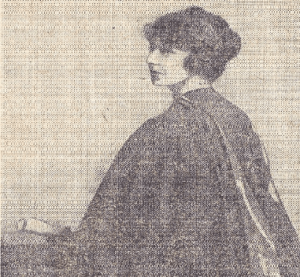What comes to mind when you think of a law student?
Do you think of a young, handsome, clever man in a fancy suit and tie? Or your best friend who went to law school just because they hated maths and were kind of good at winning arguments?
In fact, for the majority of human history, women never really fit in the picture. Although the symbol of law itself, Lady Justice, is female, women were mostly excluded from the profession until the 20thcentury. Nowadays the situation has actually considerably altered,and it may just be that women outnumber men in some Universities.
 For those of you who are law students or lecturers- next time you are in class, look around. What do you see? Chances are, you would notice that the ratio of women to men in the room is significantly leaning towards the former’s side. According to recent statistics, the percentage of women studying the LLB in England and Wales works out overwhelmingly in their favour- 68,8%. This is reflected in a similar way across the pond in America where the statistic is 56,49%. Our own Glasgow Caledonian University does not fall behind in this trend with a staggering 72,4% of law students here being female in the academic year of 2019/2020.
For those of you who are law students or lecturers- next time you are in class, look around. What do you see? Chances are, you would notice that the ratio of women to men in the room is significantly leaning towards the former’s side. According to recent statistics, the percentage of women studying the LLB in England and Wales works out overwhelmingly in their favour- 68,8%. This is reflected in a similar way across the pond in America where the statistic is 56,49%. Our own Glasgow Caledonian University does not fall behind in this trend with a staggering 72,4% of law students here being female in the academic year of 2019/2020.
But what does this mean? Have all hurdles for women disappeared with the progress of time? Why are we even doing this project since it is in fact men who appear to be disadvantaged in certain circumstances? The truth is, while there are more women in higher education than ever before, as the career progresses and as you look into different fields the numbers start lowering. Substantially. For example, according to the ‘first100years’ project, as of 2016 women amount to only 125 of the 462 Scottish Advocates, 21 out of the 112 QCs and 9 out of the 31 judges!
Although these are not the only legal professions out there, it is important to recognise the stark difference between how few women pursue them and how many study law in general. Are females looked at differently at interviews or do they simply avoid those positions due to their nature? The reason can be as sinister as women being seen as more unreliable in the long term due to childbirth or not a good fit for the job because of their “inherent femininity”. Or are we, as women, just not confident enough in our ability to tackle such male-dominated fields?
What is clear is that University might not be a good indicator for women in the legal profession. Our research suggests that, even though there are less of them studying the LLB, men have a much higher chance to succeed in higher positions of power than their female counterparts. Through our ‘Women in Law’ project we aim to find out why that is, what hurdles women still face and what can be done to increase equality within the legal sector as a whole.

